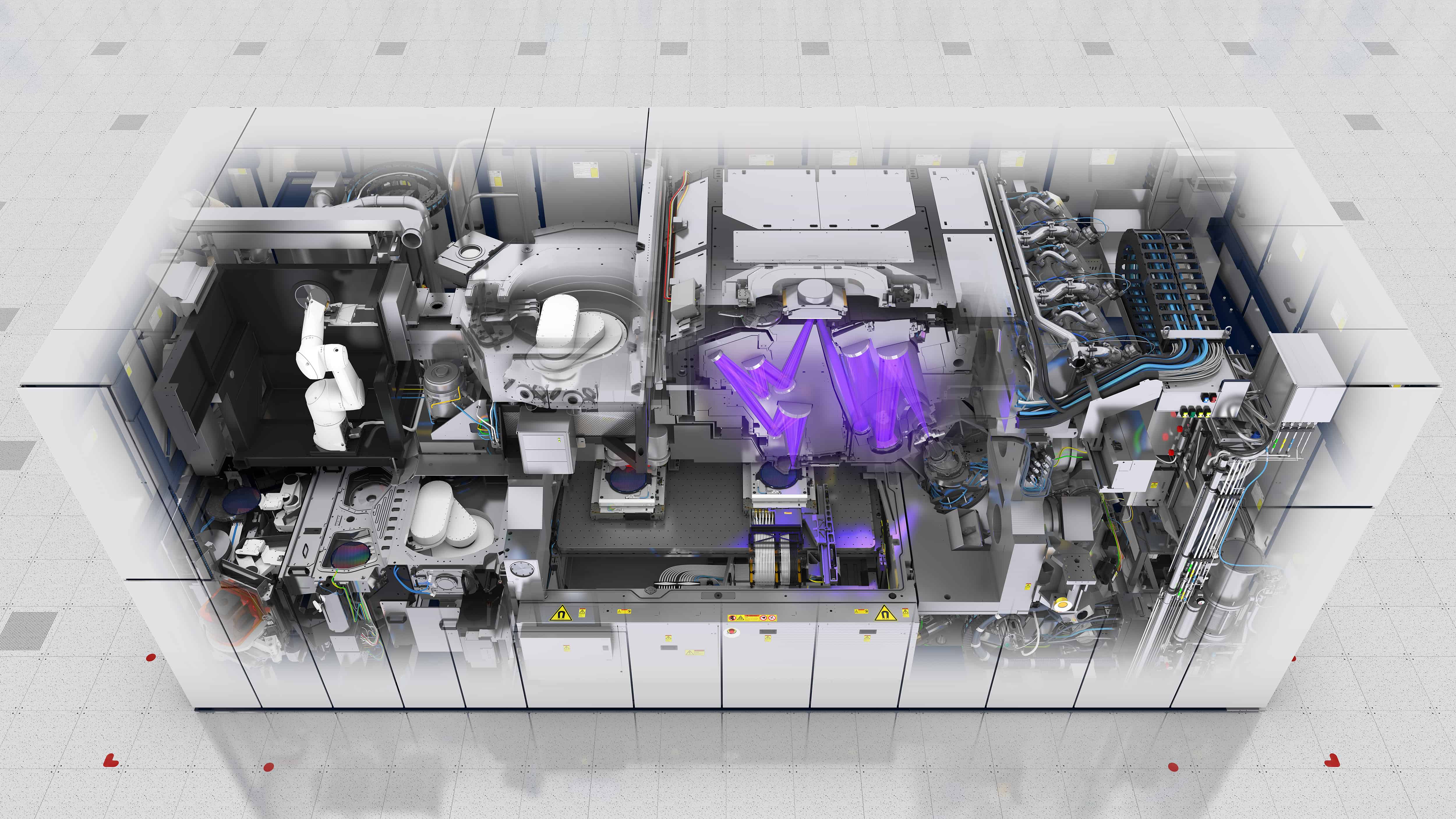
ASML, the Dutch manufacturer of chip machines, is seeing remarkable growth in sales to China. Where other markets are hesitant, China’s share of ASML’s total sales rises from 10 to 24 percent, ASML top executive Peter Wennink announced earlier this week. This shift was partly made possible by decreased demand from chip producers worldwide. Completed chip factories in China now demand software tools, which ASML can provide. With a higher profit margin, demand for deep ultraviolet (DUV) machines is expected to rise by 50 percent this year, driven mainly by Chinese customers.
- China’s share in ASML’s total revenue has increased from 10 to 24 percent due to a surge in demand for Deep Ultraviolet (DUV) machines, mainly driven by Chinese customers;
- ASML expects a revenue growth of around 30 percent this year, with the demand for DUV machines projected to rise by 50 percent.
Despite market caution, ASML expects revenue growth of around 30 percent this year. The second quarter exceeded expectations with net sales of €6.9 billion. Recently, ASML strengthened its expertise in mechatronics by acquiring a research team of one hundred employees from Philips. This acquisition and the agreement to receive payment for the shipment of DUV machines to customers further boosted ASML’s sales from DUV lithography systems.
DUV Machines: China’s New Favourite
Demand for Deep Ultraviolet (DUV) machines is booming in China. These machines, known for their higher profit margin, are being bought up en masse by Chinese customers, leading to an expected 50 percent increase in demand for DUV machines this year.
The recent completion of modern chip factories in China partly causes this remarkable growth in demand for DUV machines. These factories urgently need software tools, which ASML is currently supplying. While chip makers elsewhere are reluctant, ASML is succeeding in better serving the Chinese market.
Constraints and Challenges
Despite the positive outlook, there are also challenges. ASML faces tighter restrictions on its ability to work with Chinese customers, further escalating the technology clash between Washington and Beijing. Dutch export control rules will prohibit ASML from providing maintenance, repairs, and spare parts for controlled equipment without a government license. These restrictions are related to new regulations published by the government in June that prohibit ASML from shipping some so-called immersion DUV lithography machines, its second most capable machines, to China without a license from September.
Despite this potential impact of the partial loss of the Chinese market, ASML does not expect it to affect revenue immediately. Despite the ongoing economic downturn in the chip industry, the company has a third-quarter revenue target of between €6.5 billion and €7 billion.

Growth and Personnel
ASML received €4.5 billion in new machine orders in the last quarter, more than in the previous quarter but less than in the same period last year. Revenue from these orders will mainly be reflected in the quarter when the machines are delivered. ASML currently has a significant backlog of orders worth €38 billion.
The company is still looking for additional staff, although it expects slower growth than the previous year. ASML recently took over about 100 employees from Philips, mainly engineers from the Philips Engineering Solutions division who were already involved in developing chip machine components.
Following the announcement of the quarterly results, ASML’s shares initially rose slightly but later fell during the presentation, ending the day with a loss of 2.1 percent. Despite this minor setback, ASML remains a strong player in the chip machine industry, with China rapidly emerging as an essential market.







